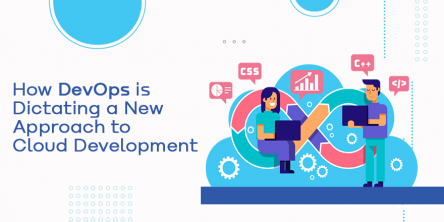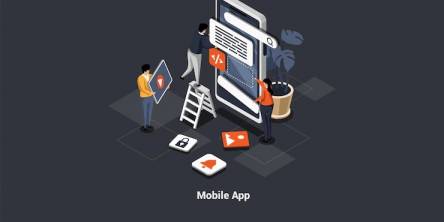Porting iOS Apps to Android: Top Factors to Keep in Mind

Porting iOS apps to Android or vice versa might seem less complex for a layman, but the actual process is quite different across porting platforms. If you run a business, you would agree that launching applications on either of the platforms simultaneously might not be a financially and strategically viable option for both enterprises and individuals.
Given the higher revenue potential of Google’s Android, it is preferable compared to Apple’s mobile OS (iOS). If you are considering porting your iOS app to Android, you have come to just the right place. You see, it is a strategic endeavor — one that necessitates the careful consideration of different factors before making the switch. To help ease the process for you, we have listed some of these considerations below.
1. Device type: While iOS is limited to iPhones now, the Android OS is used by a staggering number of devices all over the world. This is why one must choose a specific set of Android devices for app testing once the conversion is completed. The Android device market includes devices from Samsung, HTC, Motorola, etc.; this is why choosing a handful of the most popular Android devices in the market you are aiming at is critical while converting an iOS app to Android.
2. Design: iOS and Android apps differ significantly when it comes to their design. Case in point: Button. iOS makes use of blunt, rounded buttons; whereas Android apps see the use of sharp-edged buttons. There are plenty of other points of distinction as well, but you get the drift. So, when you are switching your app from iOS to Android, take care to use the right kind of design tools since a lot of them tend to offer design templates exclusively for iOS and nada for Android app designing. Some design tools that can help you avoid this conundrum are Vision, Photoshop, etc.
3. Security: Security is among the top concerns for any digital entity in the world today, but more so for mobile apps due to the huge amounts of sensitive data they have access to and store. To tend to this particular aspect during the transition from iOS to Android, one must remember that Java-coded Android apps can be easily decompiled to access the original code. Hence, it is imperative to obscure while converting the iOS app to Android. Yet another popular strategy developers adopt to boost the security of their apps is ensuring that sensitive information is not used in coding. This goes a long way in safeguarding against privacy breaches.
4. Coding: Of course, the two OS make use of different programming tools. For starters, Android applications are made using resources such as Android Native Development Kit (NDK), Java, Kotlin, etc. On the other hand, one makes iOS apps on Xcode with help from Swift or Objective-C. Each one’s coding process is significantly different and necessitates the use of programming languages, frameworks, and other development tools unique to each of the two OS. So, how do you go about the transition in this case? It is quite simple — iOS, as well as Android support C, meaning some parts of the code, can be ported straightaway.
Porting apps is a complex endeavor without a doubt; however, with the right tips and strategy, one can ace the transition without a hitch. So, when you start pondering the question “How to convert iOS to Android?”, you know to consider the factors mentioned above. Now, if you wish to further fortify your iOS to Android transition project, we recommend getting in touch with a trusted development company with prior experience in enabling and handling such transitions.
Similar Articles
Mobiles and by extension, mobile apps are the basis for the modern mobile device and take it beyond a mere communication tool. In today’s world, information has to be available at our fingertips and people want mobile applications to do instantly what websites used to do before, give information and details instantly, anytime & anywhere
In the ever-evolving landscape of app development, embracing innovation is not just a choice but a necessity. Enter serverless architecture, a transformative paradigm reshaping how we approach app development.
EdTech developers leverage modern technology to create immersive and engaging learning apps. A successful product relies on solid technology, including front-end frameworks like React.js, offering efficient development and incorporating cutting-edge features like gamification and voice recognition for a standout user experience in the education industry
Internet of Things, or IoT, is a fast-growing concept that promises a transformation in how we live and work. It enables us to connect and control smart devices such as wearables, medical devices, sensors & more using mobile apps. IoT has impacted many aspects of our lives, and some of the most notable are home building, logistics, healthcare, and more.
Mobile app development has become an essential part of the digital ecosystem as mobile devices have become more prevalent than desktops or laptops. Regarding mobile app development, two popular approaches are Xamarin and native mobile app development.
With React Native becoming one of the preferred tools for developing mobile and web apps, there has been a growing focus on outsourcing software development based on this language
With over 6.3 billion estimated smartphone users worldwide, mobile app usage is growing exponentially. Studies have shown that Americans check their phones 262 times daily, once every 5.5 minutes! People check their phones at home, at work, on the street, while eating, in bed, and cars.
With the number of companies embracing digital solutions growing continuously, there is also an increasing demand for cloud services. Cloud development services help businesses (small or big) take advantage of digital transformation and to move their infrastructures to the cloud.
Businesses nowadays are fully enmeshed in the outstaffing and outsourcing trend. In order to boost production and take advantage of the expertise of specialized experts, it is safe to assume that modern professionals are more reliant on outsourcing









